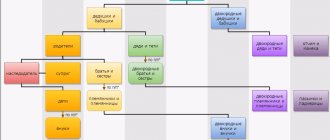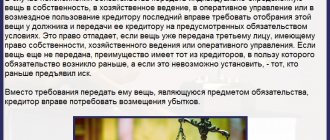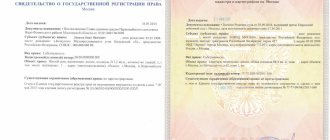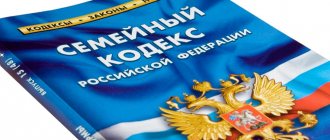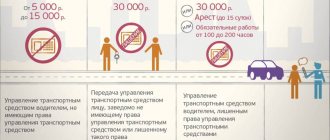Protection of copyright and related rights is something that is so necessary in the realities of real life. Have third parties used your work without the author's consent? Is the computer program or database you created being resold, but you are not getting the benefit? Are you the author of a work or computer program, but don’t know how to make money from it?
Our copyright lawyer will help in protecting copyright and related rights, and will also offer you a special offer - legal support to prevent violations of the author's rights in the future.
When is legal protection of copyright and related rights possible?
When deciding whether to go to court, first of all, it is necessary to determine the list of subjects subject to copyright and related rights protection, which includes:
- Works of science
- Works of literature
- Works of art
- Computer programs
- Database
- Other
Taking into account the uniformity of the grounds, procedure and method of protecting rights, it is also necessary to establish a list of objects of related rights:
- Performances by artists
- Directors' productions
- Phonograms
- TV shows
- Other
ATTENTION: watch a video on the topic of intellectual property protection, learn how to properly protect a trademark and other rights. Subscribe to the YouTube channel and get free advice from a lawyer on copyright and exclusive rights in the comments
How to file a claim?
Restoring justice in case of violated administrative regulations is often possible only through a lawsuit. This is a formal request to the court that justice be done. There are several rules for solving a problem through a claim:
- The claim procedure for resolving the problem is always applied, with the exception of situations specified by law;
- The claim is filed strictly at the territorial location of the defendant. The court may be different if it is specified in a previously concluded agreement;
- For claims involving violations of the AP, plaintiffs do not pay state fees. It is recovered from the defendant;
- The statute of limitations for such cases is three years.
If moral copyrights are involved in the proceedings, there will be no time limits.
Copyright Self-Protection
One of the ways a person can protect their copyright is self-defense. When resorting to this method, you must always remember that self-defense should not go beyond the law, otherwise the person who defended his rights may become a person who violated the rights of another.
The boundaries of self-defense are not defined by law. What can a person do to protect his copyrights without resorting to the help of competent authorities?
A person can prepare a claim against the copyright infringer and send it by mail or hand it over with a mark on his copy. The complaint should indicate your demands to stop the infringement of the relevant copyrights.
If the violator sells counterfeit products, then it is possible to carry out, so to speak, a “test purchase” of the counterfeit from the violator with filming on a video camera. The video recording will be one of the evidence of violation of the author's rights.
To register your rights to some copyrighted object, you can contact a notary for certification, so that the notary will put an certifying inscription and seal on the document. In the future, such a certificate will help prove to a person his copyright, taking into account the date of the certificate.
Methods of protecting copyright and related rights
- determining the exclusivity of an object. This circumstance is extremely important, because only newly created, new things are subject to protection. Otherwise, you will be the violator of copyright or related rights.
- establishing the fact of violation of rights.
- assessment of damage caused.
- sending and competently drawing up a claim to the infringer within the framework of protecting copyright and related rights
- establishing the grounds for seeking judicial protection
- other assistance from a copyright lawyer
Protecting the interests in the direction of protecting the copyrights of their client, lawyers, in addition to monetary compensation through cooperation with government bodies designed to protect the rights of authorship, seek to bring violators to justice, including criminal liability, because the referral of a lawyer in criminal cases is also one of our proposals within provision of legal services. As a rule, in the future there will be fewer cases of violation of copyright or related rights.
Characteristics of methods
In the civil law sense, methods of protection are a set of coercive measures that serve as an instrument of influence on the violator, as well as the restoration or recognition of disputed or violated powers. The list of measures is regulated by Article 12 of the Civil Code of the Russian Federation:
- the right is recognized;
- the right is restored to its original position until the moment of committing or expressing the threat of committing illegal actions;
- the transaction is declared invalid or void;
- duties are awarded to performance in kind;
- an act of a state body or an act of local self-government is declared invalid;
- an act of an authority at any level that is contrary to the law is not applied by the court;
- moral damage is compensated, losses are compensated, a penalty is collected;
- legal relations are terminated or changed;
- self-defense of rights occurs.
This is not an exhaustive list. In the last paragraph of the article, the legislator indicated the possibility of using other methods provided for by regulations.
In accordance with Article 1250 of the Civil Code of the Russian Federation, the absence of guilt of the entity that violated the intellectual right of another person is not a basis for exemption from the obligation to stop illegal actions. Defense measures can be applied regardless of the fact of guilt.
Copyright claim
If the copyright of a specific person is violated, the latter has the right to go to court with an appropriate claim. Different requirements can be stated, it all depends on the circumstances, for example, you can state a requirement for recognition of authorship, or you can demand copyright protection.
The claim is drawn up according to the general rules of procedural law and must contain:
- an indication of the court to which the claim is being filed;
- information about the plaintiff, i.e. Full name, address of registration and/or residence, telephone number, email address (at the discretion of the plaintiff);
- information about the defendant, i.e. his full name, address, if his phone number is known, then you can indicate it;
- name of the document: “statement of claim”;
- the text of the claim sets out all the circumstances of the case, which expresses the defendant’s violation of copyright, and provides references to the rules of law in support of the plaintiff’s claims. The operative part of the claim specifies directly the plaintiff’s demands, including compensation for losses, compensation for moral damage, and others;
- the claim also reflects a list of attached documents that confirm the plaintiff’s arguments;
- At the end of the claim there is a date, signature and transcript of the signature.
USEFUL: watch a video with additional advice from a lawyer on drawing up a statement of claim
AP violators
Copyright infringers can be legal entities and individuals who do not comply with legal requirements specific to this area.
Illegal actions aimed at violating the administrative regulations are called counterfeiting. Those who carry them out are pirates. Who is this?
As modern judicial practice has shown, pirates are well-known large companies and fly-by-night companies that sell counterfeit products.
If the product was used by a well-known organization, it will be much easier to defend your rights. Reputable companies care about their reputation, so they prefer to avoid going to court and compensate for losses themselves.
As for fly-by-night companies, it is more difficult to fight them. Many of them are created for a short period of time, and after completing their illegal actions, they close down. In this case, even if guilt is proven, there will be nothing to take from the violators.
Budget pirates
Not only commercial private organizations, but also state ones can violate the AP. The latter, when revealing the fact of violation, refuse to bear responsibility and refer to the inability to pay remuneration to the author.
At the moment, almost all modern theaters, palaces of culture, philharmonic societies and television channels violate the rules. They often show copyrighted content, and compensation can only be obtained from them after lengthy court proceedings.
The slow resolution of the issue through the courts in such a situation is based on the fact that judges often find themselves on the side of public sector employees. In addition, in the case of these organizations, it is difficult to determine the culprit.
For example, for the discovery of the fact of reproduction of a phonogram, responsibility is automatically borne by those who illegally distributed the object, those who broadcast it and those who publicly performed it.
Terms of copyright protection
The copyright protection period refers to the limitation period during which a person can protect his rights in court.
If the limitation period is missed and the defendant declares this, the author will not be able to protect his rights through the court, since the expiration of the limitation period is an independent basis for refusing the claim.
When making property claims related to copyright protection, as a rule, a general limitation period of 3 years applies.
IMPORTANT : the statute of limitations does not apply to the protection of personal non-property rights, for example, to the protection of the author’s right to a name, which is valid indefinitely.
An example from judicial practice
This area of jurisprudence is often associated with high-profile cases. An example of protecting one's copyrights in court is the famous Alenka case. The exclusive confectionery factory “Red October” sued another confectionery, which launched chocolate under the name “Alina” and stylized the label in a style very similar to the original. The plaintiff’s lawyers demanded to recover 310 million rubles from the Slavyanka factory.
Despite the fact that the court accepted the plaintiff’s position and ordered the defendant to stop producing this chocolate, compensation was awarded in the amount of only 37 million. However, during the trial, the parties managed to reach an agreement peacefully, and they signed a pre-trial settlement agreement, which stated that, in addition to stopping the proceedings, they would pay the plaintiff 15 thousand rubles.
International legal protection of copyright
When protecting copyrights, you can apply various international acts aimed at protecting such rights, which include various conventions and agreements. As is known, an international act will be applied in a national court if the Russian Federation has ratified it.
Among the international organizations that protect copyrights is the World Intellectual Property Organization.
To protect copyright at the international level, of course, it is better to contact a lawyer working on international law who knows which international acts should be referred to in order to protect the principal’s copyright and which international organization to contact.
How is AP protected?
Violation of related and copyright rights is carried out within the framework of a formal agreement and outside it.
In the first case, the author uses the sanctions prescribed in the contract. In the second, you have to act through the courts. In any case, the protection of violated rights must be carried out in the manner prescribed by law. There are two options for such protection:
- Jurisdictional – consists of the activities of authorized bodies to protect violated rights. In this case, victims turn to court or law enforcement agencies.
- Non-jurisdictional. This form of protection can be expressed in general and special form.
In any case, the problem is resolved by the court. If the problem is resolved between legal entities, the matter will be handled by arbitration.
Is copyright and related rights protection necessary?
Protection of copyright and related rights from unauthorized use is necessary. By protecting your copyright, you guarantee that the results of your work will not be misused. This is possible by identifying facts of violation of rights. Our copyright lawyer works in this area and sees many positive aspects for those who seek legal assistance.
Receiving income while protecting your rights:
- Conclusion of a license agreement. Under this agreement, you grant the right to legally use the result of intellectual activity and set the amount of a monthly or one-time payment for such use.
- Recovery of damages. This method consists of obtaining compensation for violation of copyright or related rights through a claim or judicial procedure.
- Compensation for moral damage. If copyright or related rights are violated, you have the right to monetary compensation for physical or mental suffering caused as a result of the violations.
Considering the size of compensation (compensation often exceeds 1,000,000 rubles), protecting one’s legal rights seems beneficial and necessary.
Intellectual property. Legal support
Legislation of the Russian Federation in the field of intellectual property protection
The legislation of the Russian Federation in the field of IP protection consists of the Constitution of the Russian Federation (Article 44), international agreements in which the Russian Federation participates, federal laws and acts. Civil protection of IP is provided for by Part 4 of the Civil Code of the Russian Federation, which came into force on January 1, 2008. on the basis of the Federal Law “On the entry into force of part four of the Civil Code of the Russian Federation” dated December 18, 2006 No. 231-FZ.
According to Art. 1225 of the Civil Code of the Russian Federation intellectual property is the results of intellectual activity protected by law and means of individualization. Types of intellectual rights are usually classified into:
- Copyright;
- rights related to copyright;
- patent law;
- non-traditional IP objects (production secrets, chip topology, etc.);
- means of individualization of legal entities (company name, commercial designation, trademark);
- unified technology (technical data).
Intellectual rights are divided into three types (Article 1226 of the Civil Code of the Russian Federation):
- Property rights. They are associated with the author and can be sold on the basis of a contract. The category of property rights includes an exclusive right, which includes the rights to: use a product of intellectual activity (hereinafter referred to as PID) (Article 1229 of the Civil Code of the Russian Federation); dispose of PID (Article 1233 of the Civil Code of the Russian Federation); allow the use of PID (Article 1233 of the Civil Code of the Russian Federation); protect PID (Article 1252 of the Civil Code of the Russian Federation).
- Personal non-property rights. They are inseparable from the personality of the author and include the rights to authorship and name (Article 1228 of the Code). Transfer of rights to another person is not permitted.
- Other personal non-property rights arise in relation to various types of objects of law. These are the rights: succession (Article 1293 of the Civil Code of the Russian Federation), to a patent (Article 1357 of the Civil Code of the Russian Federation), access (Article 1292 of the Civil Code of the Russian Federation), and revocation (Article 1269 of the Civil Code of the Russian Federation).
Intellectual property is divided into two main areas of rights: copyright and copyright related rights and industrial property.
Copyright includes works of art or science, as well as computer programs. Related rights are rights in relation to performances, productions, phonograms and other IP objects that have become public domain.
Industrial property is a set of legal norms governing relations arising in connection with the creation and use of IP objects. Includes:
- patent property, which protects IP;
- rights to means of individualization, which apply to company names and commercial names of companies, trademarks, names of places of origin of goods;
- production secrets, which recognize any information about IP objects in the scientific and technical field and methods of their application.
The regulator in the field of intellectual property in Russia is the Federal Service for Intellectual Property (Rospatent) , which performs the functions of:
- registration of inventions (objects) and agreements in relation to IP objects;
- legal protection of state interests in this area;
- control and supervision in the field of protection and use of the results of intellectual activity;
- control and supervision in the established field of activity in relation to government customers and organizations carrying out research work in this field.
In order to protect the rights to an IP object, it is necessary to register the right, otherwise recognition of the right is possible only on the basis of a court decision.
Legal support of intellectual property
In the legal support of IP, a distinction is made between the protection of rights and their protection. Protection of rights is a general legal order in the field of IP, enshrined in regulations, carried out extrajudicially and judicially. An extrajudicial form of protection includes self-defense established by the author in an agreement concluded between the copyright holder and the acquirer of the IP right. Judicial forms of protection include civil, administrative and criminal methods of protection.
Self-protection of intellectual property in a contract
Moral rights are inseparable from the personality of the author, and their transfer is not permitted. The transfer of property rights from the copyright holder to another person is possible. The owner of property rights has the right to transfer copyright on the basis of a civil law agreement (Article 1233 of the Civil Code of the Russian Federation). The assignment of rights to IP occurs under an agreement on the alienation of an exclusive right (Article 1234 of the Civil Code of the Russian Federation), and the transfer of copyright for a time by granting the right to use IP to another person occurs in accordance with civil law agreements: alienation (Article 1234 of the Civil Code of the Russian Federation), licensing (Article 1238 of the Civil Code of the Russian Federation), labor (Article 1288 of the Civil Code of the Russian Federation), under a state (municipal) contract (Article 1298 of the Civil Code of the Russian Federation).
Administrative and legal protection of intellectual property
The implementation of this form of protection is carried out in a short time. Administrative protection is necessary on the basis of the Code of Administrative Offenses of the Russian Federation (Administrative Offenses Code of the Russian Federation) dated December 30, 2001 No. 195-FZ (as amended on August 2, 2019, as amended and supplemented, entered into force on September 1, 2019).
The following offenses are subject to administrative liability for violations of copyright and related rights:
- violation of copyright and related rights, invention rights (Article 7.12 of the Code of Administrative Offenses of the Russian Federation);
- violation of the established patenting procedure (Article 7.28 of the Code of Administrative Offenses of the Russian Federation);
- sale of goods, performance of work of inadequate quality (Article 14.4 of the Code of Administrative Offenses of the Russian Federation);
- sale of goods, performance of work in the absence of a cash register (Article 14.5 of the Code of Administrative Offenses of the Russian Federation);
- deception of consumers (Article 14.7 of the Code of Administrative Offenses of the Russian Federation);
- illegal use of means of individualization of goods (Article 14.10 of the Code of Administrative Offenses of the Russian Federation);
- illegal movement of goods and vehicles through customs (Article 16.1 of the Code of Administrative Offenses of the Russian Federation) and so on.
When ensuring legal protection of IP established by the Code of Administrative Offenses of the Russian Federation, it is necessary to note the problems that complicate legal regulation: the passive attitude of authors and copyright holders to the protection of IP rights, the lack of a methodology for calculating damages in case of violation of IP rights, the absence of the concept of “counterfeit products” in the law, administrative inefficiency -legal sanctions, lack of fight against “piracy”.
Solving these problems requires changes to administrative legislation so that sanctions for violation of rights acquire preventive significance.
Civil protection of intellectual property
This form of protecting the right to an IP object is used to restore the violated right in court. In civil legislation, there are two groups of protection of IP rights: universal in nature, used to protect not only the right to an IP object, but also other subjective rights (Article 12 of the Civil Code of the Russian Federation), and aimed exclusively at IP objects.
Article 12 of the Civil Code of the Russian Federation provides for the following methods of protecting IP rights in court:
- recognition of the right of authorship (Articles 1252, 1265 of the Civil Code of the Russian Federation);
- restoration of the situation that existed before the violation of the right (Article 301 of the Civil Code of the Russian Federation);
- compensation for losses (Articles 1300, 1301 of the Civil Code of the Russian Federation);
- coercion to fulfill an obligation in kind (Articles 308.3, 396 of the Civil Code of the Russian Federation);
- compensation for moral damage (Articles 151, 1251 of the Civil Code of the Russian Federation);
- seizure of materials used to violate rights (Article 1252 of the Civil Code of the Russian Federation);
- termination or change of legal relations (Articles 450, 451 of the Civil Code of the Russian Federation);
- publication of a court decision on a violation (Part 1 of Article 1252 of the Civil Code of the Russian Federation);
- taking other measures provided for by the legislation of the Russian Federation (Article 1231 of the Civil Code of the Russian Federation).
When ensuring legal protection of IP, it is necessary to note the following controversial issues of civil protection of IP rights in court. There are no criteria for assessing IP. The law also does not establish a list of admissible evidence on the basis of which the fact of violation of IP rights is established (Article 55 of the Civil Procedure Code of the Russian Federation, Article 64 of the Arbitration Procedure Code of the Russian Federation). In this regard, the protection of IP rights depends on the prevailing judicial practice in a particular region. Based on established judicial practice and clarifications of the Supreme Court of the Russian Federation, the criteria for assessing IP rights are novelty and originality. For example, the Resolution of the Intellectual Rights Court dated June 29, 2017. in case No. A56-23644/2016, according to which the cassation court agreed with the conclusions of the appellate court to the extent that the appellate court found that the Agreement does not meet the characteristics of a work as an object of copyright (novelty, creative nature of the creation of the work, originality (uniqueness, inimitability) of the work, therefore the court of first instance did not have legal grounds to satisfy the plaintiff’s demands.
Thus, if the creator can prove in court the authorship and the IP object created by creative work has signs of novelty and originality, then the court will recognize his right to IP. If the author (creator, copyright holder) does not prove his right, the court will reject the claim. I’ll tell you about such a legal dispute from my practice.
Legal dispute
Arkady has been working as a photographer in an advertising agency for a long time, and sometimes works on the side. Last year, the director of the company, whom Arkady had known for many years, offered a part-time job in the form of taking photographs of the city of Tobolsk for the production of a desk calendar for 2021. We agreed on the terms of the order. They did not conclude an agreement, but the order was formalized with a written application. Arkady took the photographs quickly and also sent them through a courier, taking a receipt. The money had to be transferred to a bank card. Neither tomorrow nor later the money arrived. Arkady called back and was told that the director had refused the calendar and the photographs had been destroyed. At the beginning of 2021, Arkady, on official business, stopped by one of the construction companies, where on the wall behind the director’s chair he saw a colorful wall calendar with his photographs. They didn’t give him the calendar, but they allowed him to take photos of the calendar pages. This is how Arkady found out the printing house where the photographs were printed and the customer. It turned out that the customer did not destroy the photographs, but ordered calendars for future use.
Pre-trial procedure
I collected evidence: an application for shooting, a receipt for receiving photographs, a screenshot of correspondence, a TIFF file with all layers confirming the creative work on the photo, witness statements, evidence of the production of calendars, a specialist’s report and filed a claim in court.
Judgment and methods of defense in court
The court of first instance rejected the claim due to lack of proof of the fact, due to the failure to present to the court the camera with which the photographs were taken. Having disagreed, I appealed the court decision to the appellate court. The judicial panel of the regional court examined the case and found that the court of first instance erroneously concluded that the fact was not proven. The appellate court concluded that the trial court unreasonably concluded that there was no copyright agreement between the plaintiff and the defendant. As a result, the judicial panel of the regional court overturned the decision of the trial court and made a court decision to recover compensation from the defendant in favor of the plaintiff for violation of property rights and moral damage, and also recovered legal costs and expenses from the defendant.
The above example from my judicial practice shows that it is quite difficult to prove authorship in court. The likelihood of winning will increase if you choose the appropriate method of protecting the violated right and provide the court with the appropriate evidence:
- Evidence of violation of the author's rights to the IP object. For example, the Decision of the Court of Justice of the Novosibirsk Region dated May 14, 2021 in case No. A45-33318/2017.
- Evidence that the plaintiff owns exclusive rights. For example, the Decision of the Arbitration Court of the Kemerovo Region dated May 28, 2021 in case No. A27-3997/2019.
- Evidence that a violation of the plaintiff’s right has been properly recorded. For example, the Decision of the Court of Justice of the Omsk Region dated June 20, 2021 in case No. A46-2212/2019, etc.
At the same time, the main way to protect a violated right in court is the creation on 02/01/2013 of a court for intellectual rights - a specialized arbitration court that hears cases on disputes related to the protection of intellectual rights (Article 43.4 of the Federal Constitutional Law “On Arbitration Courts in the Russian Federation”, part 4, Article 34 of the Arbitration Procedure Code of the Russian Federation). In addition, the court for intellectual rights, as a court of cassation, reviews cases that were considered by the courts of first instance, as well as cases considered by arbitration courts of the constituent entities of the Russian Federation at first instance and arbitration courts of appeal, and also checks the legality and validity of administrative acts (h 3, Article 274 of the Arbitration Procedure Code of the Russian Federation).
At the same time, if the presence of guilt is established and the actions of the offender contain elements of a crime, then the author has the right to resort to criminal legal protection of rights.
Criminal legal protection of intellectual property rights
The specificity of committing this category of crimes lies in the fact that the subject of appropriation (illegal use) of IP rights is not a specific thing, but an abstract category of right to an IP object: name, work, invention, etc. The criminal result of theft consists of causing material damage to the author (copyright holder), the amount of which is determined by the value of the seized property. When assessing the amount of damage in cases of violation of IP rights, the losses incurred by the author are taken into account, as well as the lost profits that would have been received from the sale of the IP work. In most cases, the figure can only be indicated by a forensic examination, which is appointed on the basis of a petition (Article 195 of the Code of Criminal Procedure of the Russian Federation).
However, not everything is so simple. On the one hand, the term “losses of the copyright holder as an object of assessment” was not reflected either in the Federal Law of July 29, 1998 No. 135-FZ “On Valuation Activities in the Russian Federation”, or in the Federal Valuation Standards, or in the provisions of the National Council for Valuation Activities ( NSOD), nor in the standards of SRO appraisers. On the other hand, the losses and guilt of the offender, as well as the cause-and-effect relationship between the committed act and the losses must be proven by the plaintiff. In connection with the above, I believe that only after a comprehensive analysis of the circumstances of the case can one determine which decision is correct: go to court for compensation for losses incurred or ask the court to collect compensation. And here we should turn to the practice of the intellectual property rights court. The court has repeatedly explained in court decisions that the presence of losses is only one of the factors influencing the amount of compensation collected, but not the basis for its recovery. According to the court, compensation is subject to recovery if the fact of an offense is proven, regardless of the presence or absence of losses (clause 3 of Article 1252, Article 1301 of the Civil Code of the Russian Federation) (Intellectual Rights Court Resolution No. S01-385/2014 dated June 11, 2014 in case No. A43-8973/2013).
Criminal legal protection of IP is carried out in relation to violation of copyright and related rights (Article 146 of the Criminal Code of the Russian Federation), violation of inventive and patent rights (Article 147 of the Criminal Code of the Russian Federation), illegal use of means of individualization of goods (works, services) (Article 180 of the Criminal Code of the Russian Federation ), illegal receipt and disclosure of information constituting a commercial and tax secret (Article 183 of the Criminal Code of the Russian Federation).
The problem of prosecuting those responsible for committing crimes in relation to IP rights is that the current criminal legislation of the Russian Federation does not allow law enforcement agencies to effectively combat crimes in the field of IP due to the classification of this category of cases as crimes of minor gravity. For example, the verdict of the Kirovsky District Court of Tomsk dated November 30, 2017 in case No. 1-487/2017, according to which the accused, acting against the will of the copyright holders without the appropriate agreement and permission, in order to make a profit, out of selfish interest, illegally used copyrighted objects : a computer program for the computer CorelDRAW Graphics Suite X7, costing 36,905 rubles and the Compass -3D program version 16.1.10 costing 110,000 rubles, for a total of 146,905 rubles, which is a large amount. As a result, the accused was convicted under Part 2 of Art. 146, part 2 art. 272, part 2 art. 273 of the Criminal Code of the Russian Federation, and he was sentenced to:
- according to Part 2 of Art. 146 of the Criminal Code of the Russian Federation in the form of 4 months of correctional labor with the deduction of 10% of earnings to the state income;
- according to Part 2 of Art. 272 of the Criminal Code of the Russian Federation in the form of 1 year of correctional labor with the deduction of 10% of earnings to the state income;
- according to Part 2 of Art. 273 of the Criminal Code of the Russian Federation in the form of 6 months of imprisonment.
Based on Part 2 of Art. 69 of the Criminal Code of the Russian Federation, the final punishment was imposed by absorbing a less severe punishment with a more severe one in the form of imprisonment for a period of 6 months. Based on Art. 73 of the Criminal Code of the Russian Federation, the punishment is considered suspended with a probationary period of 1 year.
From the above example it is clear that the insignificant penalties provided for crimes in the field of IP, the high profits of offenders, the minimal risk of detention and prosecution lead to the fact that the number of crimes in the field of misappropriation and use of intellectual property is growing, as a result of which the author (copyright holder) suffers losses and moral damage.
Conclusion
In the context of modern development of IP law, it requires effective legal protection. Persons who illegally use someone else's IP not only cause significant material damage to authors (copyright holders) by extracting income, but also violate the rights and legitimate interests of society and the state, and undermine the fundamental principles of the economy. The difficulty of proving this category of cases in the courts, the insignificant penalty provided for crimes in the field of IP, undoubtedly requires amendments to the current legislation so that sanctions for violation of intellectual property rights acquire preventive (warning) significance.
Source: https://lawmobile.ru/blog/intellektualnaya-sobstvennost-pravovoe-obespechenie
Lawyer for the protection of copyright and related rights in Yekaterinburg
Protecting copyright and related rights of principals, our employees provide assistance in the following:
- Monitoring violations. Collaborating with specialists in the field of computer technology, our lawyers exercise daily total control over the unauthorized use of copyright/related rights.
- Pre-trial settlement. At this stage, lawyers negotiate with the violators or their representatives, while achieving a consensus that is beneficial, first of all, for the client.
- Judicial protection. By representing interests in the judiciary, our employees will achieve
- Restoration of violated rights.
- Recovery of losses incurred. Determined by the amount of income received as a result of the use of the results of the author’s work by the defendant.
- Compensation for moral damage. The size is determined solely by you. Subsequently, the validity of the stated requirement will be established by the court.
- Bringing the perpetrators to justice. The legislation of the Russian Federation provides for both administrative and criminal liability for violation of copyright or related rights.
- By concluding a long-term agreement with us, We guarantee regular detection of violations of your copyright/related rights.
Practice shows that a well-structured system for protecting copyright and related rights, and most importantly, a willingness to defend them, as a rule, “scares off” potential violators. You can take protective measures today by simply calling our Law Office.
Important nuances
The specificity of legal relations in the category under consideration lies in the range of subjects. Legal protection of exclusive rights applies to both the copyright holder and the licensee - the holder of an exclusive license.
The complexity of the category determines the presence in the legislation of unprecedented liability measures in relation to legal entities and individual entrepreneurs. Thus, the repetition and severity of violations of the exclusive right serve as the basis for the prosecutor to put forward a demand in court to liquidate the business entity and satisfy such a demand. Individual entrepreneurs may be held liable under both civil and criminal law on the basis of Article 1253 of the Civil Code of the Russian Federation. Article 146 of the Criminal Code of the Russian Federation provides for liability for plagiarism on a large and especially large scale, as well as under the condition of causing major damage to the author or copyright holder.
The practice of recent years shows that compensation as a form of protection is the most popular option. The basis for its recovery is proof of the fact. At the same time, the citizen who initiated the process is not obliged to provide arguments and provide evidence of the amount of losses caused to him.
It is important to note that compensation payments can only be recovered from the holder of an exclusive category of rights and only in the event of a violation of these particular rights. Increasingly, a method of protection is being used in the form of recovery of damages for causing moral damage due to unlawful actions of competitors.
